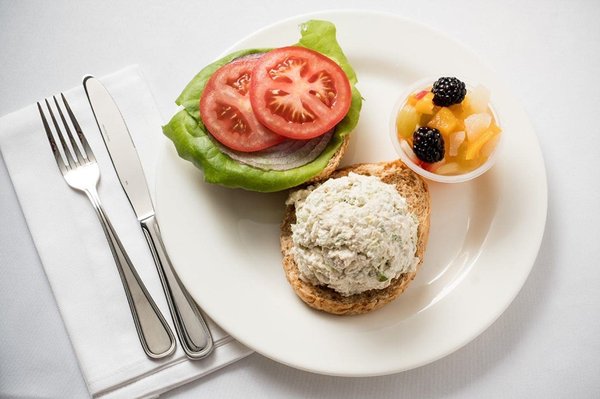Dr. Kristin Rising has spent more than five years studying the needs of type 2 diabetes patients and the health care system's ability to meet them.
She's uncovered some deficiencies.
"The system is very good at telling patients what not to eat," said Raising, a Jefferson Health physician. "But it really isn't very good about telling patients what to eat.
- RELATED STORIES
- Millions of diabetes patients are missing out on Medicare's nutrition help
- Type 1 diabetics decry rising costs of life-saving insulin
- Color-changing tattoos may help diabetes patients monitor their levels
Now, Jefferson Health aims to help diabetics better control their disease by delivering medically-tailored meals and providing individual nutrition counseling via telehealth. The unique effort is part of a five-year, $3.2 million clinical trial being led by Rising.
Researchers hope the combination will increase diabetics' access to healthy foods while providing better instructions on how to maintain an appropriate diet.
The researchers want to see whether the interventions reduce future emergency department visits and hospital admissions while also proving to be cost-effective.
One group of patients enrolled in the study will receive 21 meals each week for a duration of 12 weeks. The meals, delivered by MANNA, will be medically-tailored to each of the patients. They come pre-made, needing only to be heated.
"We believe that's a big component – we portion everything," said Sue Daugherty, MANNA's chief executive officer. "They don't have to think too much about it. We kind of laugh, because when patients start on our meal plan, if we said, 'What would you like us to send each week,' they probably wouldn't pick what we will be sending."
A typical day might start with French toast sticks, veggie sausage and fruit for breakfast. Lunch might include corn chowder, fruit and a roll. Dinner might be chicken piccata, creamy kale risotto and a california vegetable blend. Each day includes an apple or vegetable-based dessert, like pear cake.
A second group of patients also will receive individual telehealth sessions with a nutritionist for six months, followed by additional group sessions. The nutritionist counseling is designed to sustain behavior change after the food intervention ends.
Though nutrition sessions are known to improve diabetes outcomes, Rising said the majority of patients with poorly-controlled diabetes don't utilize it. Logistics – including travel time and work commitments – can prove a major barrier.
The telehealth aspect of the study aims to remove that barrier, Rising said.
A control group will receive the standard treatment for type 2 diabetics.
MANNA – a Philadelphia-based nonprofit formally known as Metropolitan Area Neighborhood Nutrition Alliance – hopes the study shows the benefit of medically-tailored meals. Some evidence exists, but there hasn't been enough randomized-controlled trials for insurers to add medically-tailored meals to their benefit plans.
"For 29 years we've been advocating the role of medically-tailored meals in health care," Daugherty said. "And getting it recognized as a treatment and getting insurer payers to reimburse for a prescribed diet – just as they would for a prescribed medication."
Beginning in January, researchers plan to enroll 200 patients in the study each year, Rising said. Each patient will be followed for a year.
The study is funded by the National Institutes of Health.
Follow John & PhillyVoice on Twitter: @WriterJohnKopp | @thePhillyVoice
Like us on Facebook: PhillyVoice
Add John's RSS feed to your feed reader
Have a news tip? Let us know.


